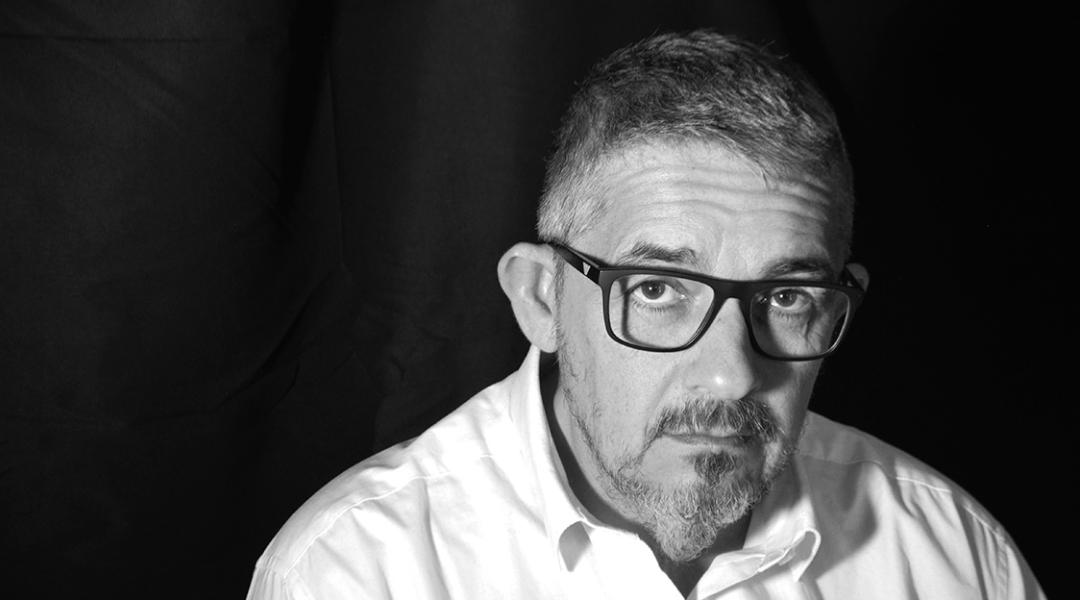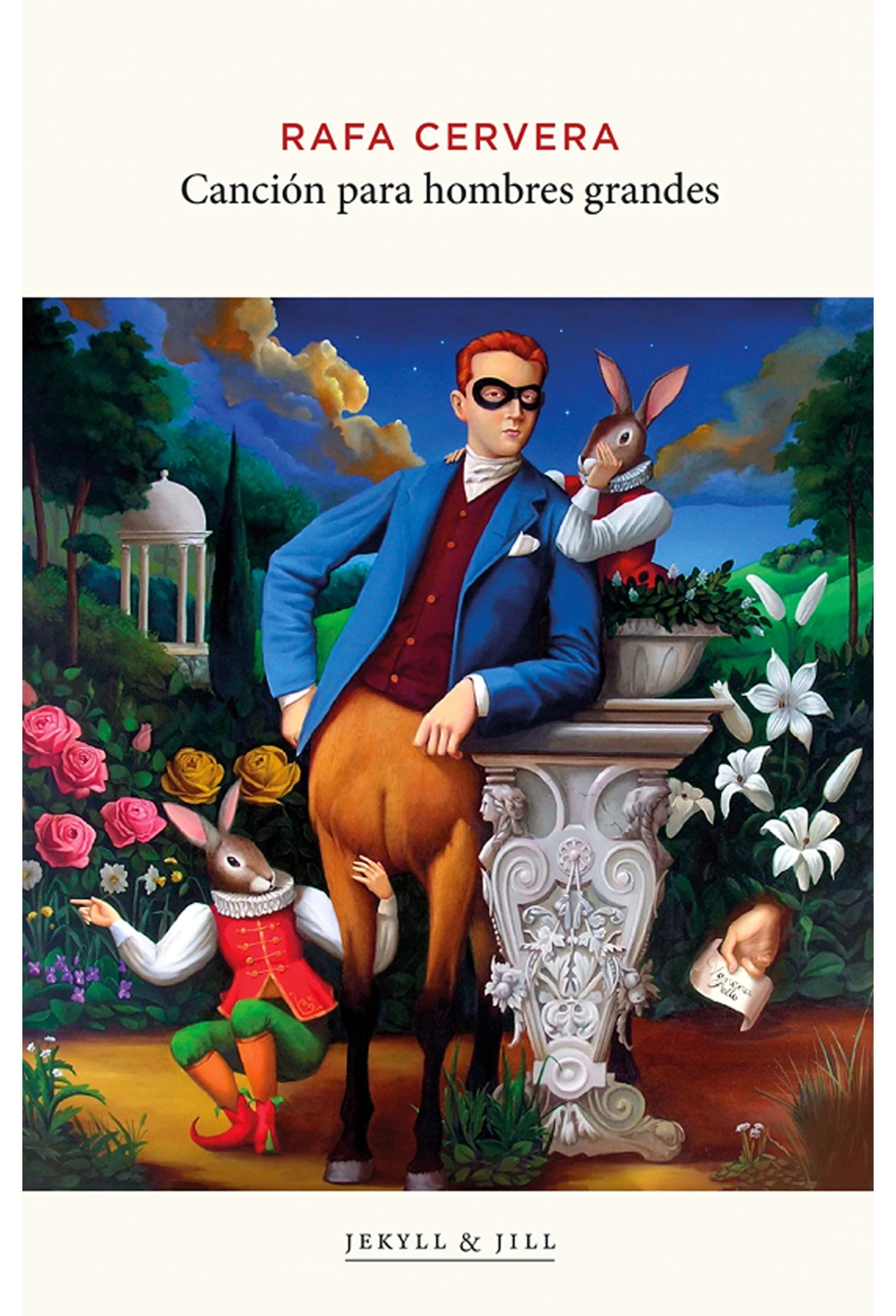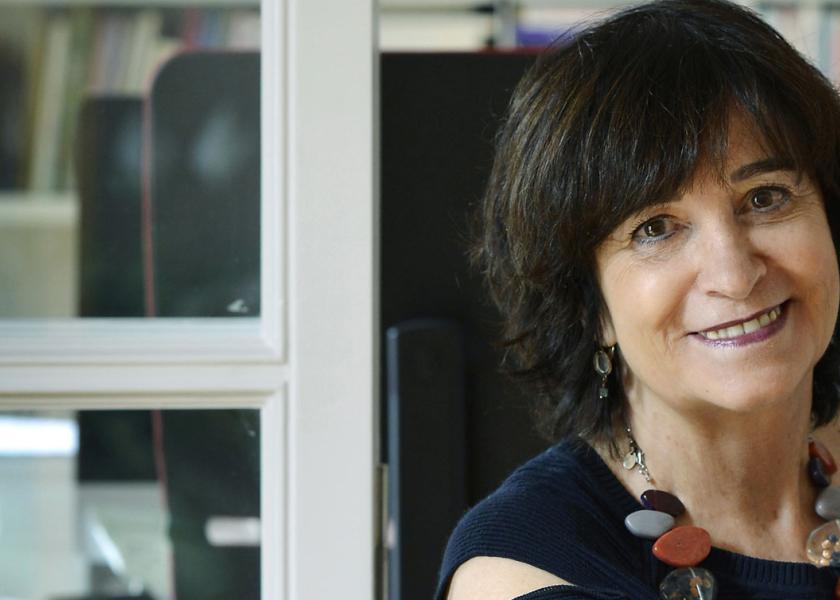Rafa Cervera
Musical (and emotional) education

From journalism, where he became a role model for music fans thanks to his articles, interviews, and a book that garnered a cult following (‘Alaska y otras historias de la movida’), Rafa Cervera made the leap to novels. After winning the Valencian Literary Critics Award (Premio de la Crítica Literaria Valenciana) in 2018 with ‘Lejos de todo’, he now publishes ‘Canción para hombres grandes’. An interview with a soundtrack.
Lou Reed contributed to liberating the writer within him, a young Mediterranean man who sought to talk to his idols. The former leader of The Velvet Underground gave Rafa Cervera (Valencia, 1963) a unique perspective of the world. After working in the media for years (Rolling Stone, Ruta 66, or GQ, among others), Rafa’s literary vocation emerged, giving rise to three novels (for now): Lejos de todo, Porque ya no queda tiempo, and Canción para hombres grandes. For Rafa, talking about literature and music, obviously, is talking about ourselves, and that’s what we do.
Where does your relationship with music and journalism come from?
I started doing interviews at the age of 17, but I didn’t want to be a journalist; I simply wanted to talk to musicians that I admired. This meant I was self-taught. I’ve always tried to convey my passion for music, but today I know that what I was really looking for on that professional journey was to liberate the writer within me.
“What I was really looking for on that professional journey was to liberate the writer within me”
Your book Alaska y otras historias de la movida is still a benchmark for anyone who wants to delve into that period. Does its spirit live on?
It was published 20 years ago and has been discontinued for more than 15, but it’s still a sought-after book on the second-hand market and is considered a reference work, which makes me proud. La movida was a really important movement, worth reading up on. It was the expression of a youthful desire for freedom that spread across the nation. It featured really noteworthy female figures —Alaska, Ana Curra, Paloma Chamorro, Las Chinas, Rubi, Blanca Sánchez...— and a strong queer presence, which is surprising given that homosexuality had stopped being illegal only a few months prior.
And after many years writing about music you came to fiction, where you found the way to talk about yourself. Is literature a journey inward for you?
Writing is always a journey inward because while I try to bring to the fore a phrase, paragraph, or chapter of a story, I delve into myself. Having said this, the only novel that is autobiographical fiction is Porque ya no queda tiempo. Lejos de todo and Canción para hombres grandes are fantasies. The thing is that in both I use my own experience to build a story, and, above all, I use the landscape that I live in [the beach of El Saler, Valencia]. The characters within these novels aren’t a reflection of myself; if anything, each of them carries a small part of me. That’s all.

‘Canción para hombres grandes’ is the latest novel published by Rafa Cervera. © Jekyll & Jill
Your first work, Lejos de todo, is a portrait of adolescents around the presence of David Bowie and also your region. Which was the story you wanted to tell?
This summer I re-read all three of my novels. They were written and published over the last five years, and I wanted to get an idea of the relationship between them. In conclusion, I’m always talking about the same thing: desire, loneliness, and the passage of time. Lejos de todo talks about a musical idol that feels disconnected from reality and runs far away, and about three adolescents who start to experience desire and the loneliness that this can entail. It also plays homage to El Saler and La Albufera, the place where I’ve lived for the past 15 years, long before moving away from big cities became trendy.
“Writing is a journey inward for me. I delve into myself while I try to bring to the fore a phrase, paragraph, or chapter of a story”
In your second novel, Porque ya no queda tiempo, you talk about your encounters with Lou Reed. What kind of impression did he leave on you?
Without Lou Reed, I wouldn’t do what I do, and I probably wouldn’t see the world the way I do. This also goes for The Velvet Underground [the band led by Lou Reed]. More than talking about my encounters with him, in the book I create a fantasy based on some of them. I never wanted to tell the story of my life, I just wanted to explain who I am by manipulating certain moments through literature, among other reasons, so that the story will outlive me.
Canción para hombres grandes is your latest publication. How long have you been writing this book?
Porque ya no queda tiempo was printed and kept in storage due to lockdown. Canción para hombres grandes came to me at that time. I hand-wrote the first sentence in a notebook: “The need to write is like libido, it never disappears.” And it’s fiction, although I accept that people want to see it as autobiographical, which doesn’t bother me. After I finished writing the novel, I started to miss its three characters because they taught me a lot about myself and gave me the opportunity to talk about homosexuality from a different perspective. And by doing so, I’ve started to speak out about myself. I’m not an exhibitionist, but we must get rid of prejudice as soon as possible. Prejudice that is still pervasive.
Your protagonist, a divorced man, starts having relationships with mature men and this gives him a new perspective of life. Has age been a determining factor to encourage you to write this novel?
Yes, I could’ve only written this book nearing the age of 60. We insist on compartmentalising our feelings, as if love or desire, or fear or sadness were the same for everyone. It’s something I learnt from reading Lou Reed’s lyrics when I was young.
“Talent is the ability to do something in a way that nobody else can. Mine resides in the way I write”
Coming back to music, what do you listen to? Could you tell us about some artists that we should be on the lookout for?
I listen to a lot of different things. Sex Pistols, Kraftwerk, Marc Almond, Pet Shop Boys, Derribos Arias, Yoko Ono, Julian Cope, Chico y Chica, Einsturzende Neubauten, Ramones, Cate LeBon... and Rosalía! Out of the newer ones, I’d highlight Dry Cleaning, Wet Leg, Sorry, and Moses Sumney.
As a collaborator of Talento a bordo you’ve asked this question many times. Now, it’s your turn: how would you define talent?
Now I realise how hard I am on interviewees when I ask them this question (laughs). Talent is the ability to do something in a way that nobody else can. Mine resides in my writing style, which is the way I perceive the world and express it. That’s my talent. Making paella isn’t my thing…


